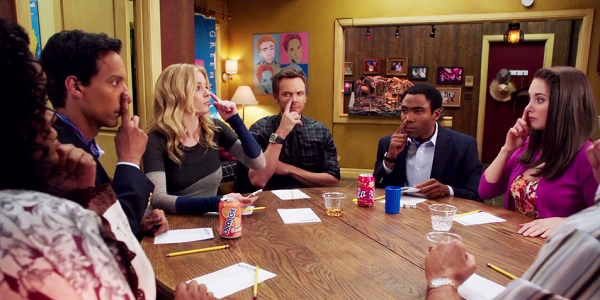Stop Complaining About Cancellations And Start Watching First Year Shows

If you’ve been paying attention to TV news in recent weeks, you’ve experienced the annual May fatigue of networks rolling out their series cancellations in anticipation for their new pick-ups. It’s a tough time for all, as the glut of imminent failures is always balanced by several fan-favorite shows getting the axe. And that’s when people start complaining. Rightfully so in most cases, though not always.
In recent years, the complaints have shifted from passively direct insults like, “Screw Fox and NBC for canceling yet another group of shows with real potential,” to more active intentions, where some viewers will portentously express that such cancellations have left them fed up with the medium as a whole. The only “obvious” choice for certain cynics is a blanketed boycott of all freshman series, with an emphasis on the ease of binge watching DVDs and streaming seasons of shows that have already been afforded such bulk packaging. You’ll see things being said along these lines.
“That is it! I’m not watching anything unless it gets at least a third season, so that I don’t have to get invested in a show that’s just going to end up canceled anyway.”
The thought process here is certainly understandable, because it’s informed by a branded society. It’s common knowledge to many that the patience to avoid purchasing the first line of pricy consumer goods is often rewarded with a modified and more successful product once the kinks have been worked out. But that’s not applicably comparable to the television experience, where it’s more akin to not reading an author’s work until he or she already has a handful of novels written. Quality is not bred from an absence of eyeballs, and popular series are also able to work out kinks and refine their stories largely because their popularity allows them continue.
The answer to this non-dilemma is the same as it is in any other line of industry. Popularity comes from having a large, interested audience consisting of people who have somehow convinced themselves that binging on a series when it hits Netflix is equal in any way to viewing it firsthand. Anyone who has ever been disappointed by the words “Sold Out” can understand that sometimes, the whole point of getting what you want is being there from the ground up. Nobody should properly be allowed to just “get around to watching” Terriers in 2013 and subsequently rail on FX for canceling it because no one watched it in 2010. Not every show can be held aloft for five seasons by fan love like Community, but it doesn’t have to be the only outlying exception.
In any case, why would anyone even want to avoid subject matter that interests them? The threat of a show’s cancellation is easily countered with being more outspoken about these series among friends and in social media. For years, audiences have wanted to feel more intrinsically responsible for the programming that networks put out, and we’re closer now than we’ve ever been. (Amazon’s pilot season voting campaign is a good example of how progressive that trend can get.) So it’s clearly not the time to just sit back and lazily hope that everyone else is digging a series just as much as you are, because that’s not enough when there are hundreds of them vying for viewers’ attention in a given year. The efforts to keep a show on TV should be happening when it’s still airing, without the need for posthumous pat-your-own-back resurrection petitions and Facebook pages. (Which I still support, don’t get me wrong.)

But I’m not entirely putting the blame on the hastily crafted assertions of angered TV fans. Almost Human had decent ratings compared to other shows of its kind and other Fox shows, but it was an extremely expensive series to produce. There’s logistically no reason why Fox couldn’t have used that important fact to appeal to people. Sure, some would cynically say that money could be better spent elsewhere, but others would take the network’s minor transparency as a hint of how things actually work, and how important it is to devote attention to first-rate projects when it matters.
But barring yearlong For Your Consideration campaigns for every single series, the bulk of the effort needs to come from those planted in front their televisions. And always keep in mind that an audience’s projected size is almost always tied to its genre, and networks are always going to be more reluctant to develop sci-fi or high-concept mysteries than they are about surefire hits like police procedurals and hospital dramas.
CINEMABLEND NEWSLETTER
Your Daily Blend of Entertainment News
So don’t wait to see if Fargo and Silicon Valley get renewed before diving into their awesomeness. Don’t be a bandwagon mourner. Remember why prime time earned that moniker in the first place. Turn your television on. Watch something. But also remember to go outside at some point.

Nick is a Cajun Country native and an Assistant Managing Editor with a focus on TV and features. His humble origin story with CinemaBlend began all the way back in the pre-streaming era, circa 2009, as a freelancing DVD reviewer and TV recapper. Nick leapfrogged over to the small screen to cover more and more television news and interviews, eventually taking over the section for the current era and covering topics like Yellowstone, The Walking Dead and horror. Born in Louisiana and currently living in Texas — Who Dat Nation over America’s Team all day, all night — Nick spent several years in the hospitality industry, and also worked as a 911 operator. If you ever happened to hear his music or read his comics/short stories, you have his sympathy.
Most Popular







